Recently at Bach Mai Hospital, the number of pediatric patients in middle school and high school age hospitalized for gastric bleeding has increased.
Increased gastrointestinal bleeding in children
Master, Doctor Nguyen Huu Hieu, Pediatric Center, Bach Mai Hospital said that the direct cause leading to the recurrence of gastrointestinal bleeding due to gastric and duodenal ulcers infected with H.pylori bacteria in recently hospitalized patients is because they have not strictly followed the treatment regimen.
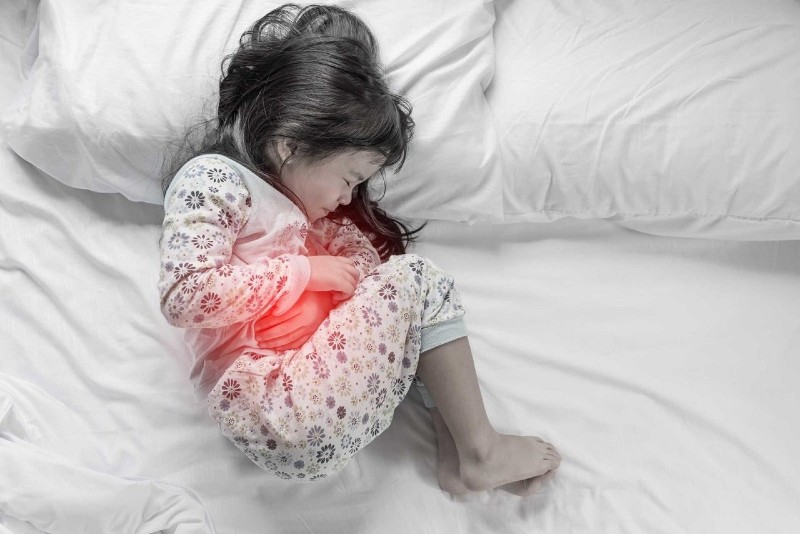 |
| Illustration photo. |
In addition, the diet, rest and living habits are also not suitable, such as doing physical activities right after eating, studying right away or playing video games, eating and drinking unsafe food, food contaminated with chemicals and many other causes.
The vast majority of cases admitted to the Pediatric Center, Bach Mai Hospital are children with upper gastrointestinal bleeding, concentrated in the group over 10 years old, especially the age group from 14 to 16 years old. This is also a complication of peptic ulcer in children.
Gastrointestinal bleeding in children often has many clinical manifestations such as vomiting blood, black stools or bloody stools accompanied by other symptoms such as abdominal pain, painful swallowing, belching, heartburn, poor appetite, fatigue, dizziness, weight loss, pale skin.
Gastrointestinal bleeding can be caused by many different reasons: esophageal varices, esophagitis, gastritis, duodenal ulcers... with very diverse risk factors such as the use of certain drugs (corticosteroids, NSAIDS...), corrosive substances, gastrointestinal foreign bodies, personal and family history of peptic ulcers, H.pylori infection, blood clotting disorders, hematological disorders, and a number of other complex digestive diseases.
Gastrointestinal bleeding occurs mainly due to improper diet such as children using a lot of stimulants (beer, alcohol, coffee), eating a lot of spicy, fried foods, eating at irregular meals, eating in a hurry, not chewing thoroughly.
Children may have irregular activities: not getting enough sleep, staying up too late, not resting after eating, rushing to do physical activities, running, playing sports , or playing video games, stressful study pressure...
Some children abuse too many drugs such as painkillers and anti-inflammatory drugs. H.pylori infection damages the lining of the stomach and duodenum.
In addition, psychological and spiritual causes such as stress, tension, prolonged fear, mental pressure in life, possibly due to studying, exams... can also cause gastrointestinal bleeding.
Doctor Nguyen Huu Hieu warns that gastrointestinal bleeding is a common digestive disease in children. In many cases, it can be benign, but in many cases, timely intervention and emergency care is needed to avoid complications and death.
Parents should equip themselves with knowledge on how to care for and manage their children’s diet, activities, study, and play. When the above symptoms appear, families need to take their children to the doctor immediately and strictly follow the doctor’s treatment regimen to avoid the disease from getting worse or recurring.
Cardiovascular risk of kidney dialysis patients
Cardiovascular complications due to high blood pressure, electrolyte disturbances, hyponatremia leading to atherosclerosis, left ventricular hypertrophy and heart failure... are the leading causes of death in hemodialysis patients.
Patients with artificial kidney have a much higher risk of cardiovascular death than the general population, specifically the rate of coronary artery disease increases >40%, left ventricular hypertrophy 20%-75% and heart failure 40%. This cardiovascular complication occurs at all ages in patients on artificial kidney.
In particular, fluid overload is an important risk factor contributing to increased morbidity and mortality from cardiovascular complications in patients with kidney disease.
Because the more fluid a patient has, the higher the blood pressure. Fluid overload in patients with artificial kidney accounts for 20%. High blood pressure is also a risk factor for increased cardiovascular mortality in kidney patients.
Furthermore, fluid overload, combined with increased blood flow and vascular resistance and hypertension, leads to left ventricular hypertrophy. The survival rate of patients with left ventricular hypertrophy is lower than that of patients without left ventricular hypertrophy. In addition, significant weight gain between dialysis sessions is also associated with cardiovascular mortality.
For kidney patients with heart failure, doctors need to pay more attention to diagnosis and treatment. In fact, there are many ways to treat fluid overload or doctors just need to instruct patients not to drink too much water, not to eat salty food, and to apply a dry diet. However, the important thing is how doctors need to handle dialysis sessions.
The goal of dialysis is to remove excess fluid so that the person can reach their target weight—dry weight.
This is the patient's weight during dialysis and there is no increase or decrease in blood pressure to help the patient feel most comfortable.
Importantly, inaccurate dry weight assessment can leave the patient feeling fatigued after dialysis due to overhydration or dehydration.
If the patient has excess water, it will cause high blood pressure due to increased volume, left ventricular hypertrophy and lead to congestive heart failure. If the patient is dehydrated, he will experience symptoms of hypovolemia and hypotension.
Therefore, it is necessary to use a reasonable and accurate measurement method, the BCM machine, to determine the correct dry weight of the patient with artificial kidney, helping to achieve the ideal ultrafiltration target, the doctor to establish a standard treatment regimen; reduce the risk of fluid overload; reduce cardiovascular disease and mortality.
Currently, medicine has determined that urea in the blood contains over 90 different toxins. When this toxin accumulates, it will stimulate the immune system, causing chronic inflammation.
At the same time, the body also reacts to stress, malnutrition, osteoporosis, especially in cases where the patient supplements too much calcium, which accidentally leads to atherosclerosis, vascular dysfunction... In fact, the toxins accumulated in patients with chronic kidney failure are more than the 90 that medicine has discovered, which puts the patient at risk of many other syndromes.
Associate Professor, Doctor, Specialist II Ta Phuong Dung, Deputy Director of the Center for Urology - Nephrology - Andrology, Tam Anh General Hospital, Ho Chi Minh City, said that doctors need to advise patients on periodic dialysis to clearly understand the problem and consequences of excess water in order to better comply with treatment.
At the same time, in addition to examining and evaluating the patient, dialysis facilities can combine the use of supporting machines to accurately determine the condition of excess water and promptly handle it during the treatment process for the patient.
Source: https://baodautu.vn/tin-moi-y-te-ngay-137-xuat-huet-tieu-hoa-o-tre-em-gia-tang-d219903.html


![[Photo] Draft documents of the 14th Party Congress reach people at the Commune Cultural Post Offices](https://vphoto.vietnam.vn/thumb/1200x675/vietnam/resource/IMAGE/2025/10/28/1761642182616_du-thao-tai-tinh-hung-yen-4070-5235-jpg.webp)
![[Photo] National Assembly Chairman Tran Thanh Man received a delegation of the Social Democratic Party of Germany](https://vphoto.vietnam.vn/thumb/1200x675/vietnam/resource/IMAGE/2025/10/28/1761652150406_ndo_br_cover-3345-jpg.webp)

![[Photo] Flooding on the right side of the gate, entrance to Hue Citadel](https://vphoto.vietnam.vn/thumb/1200x675/vietnam/resource/IMAGE/2025/10/28/1761660788143_ndo_br_gen-h-z7165069467254-74c71c36d0cb396744b678cec80552f0-2-jpg.webp)




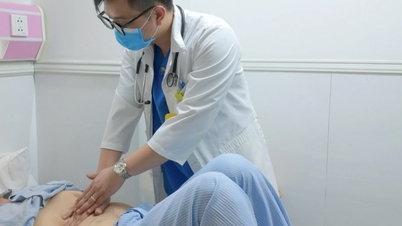



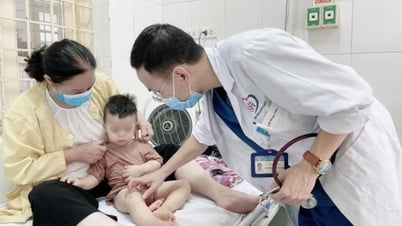




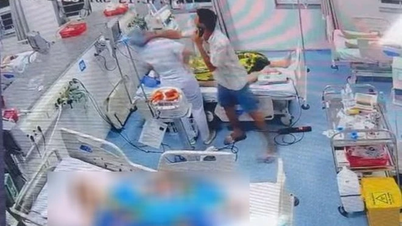
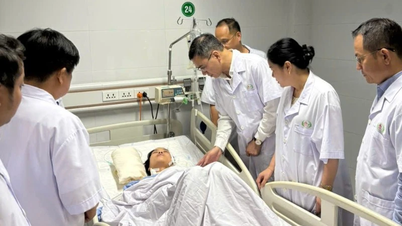

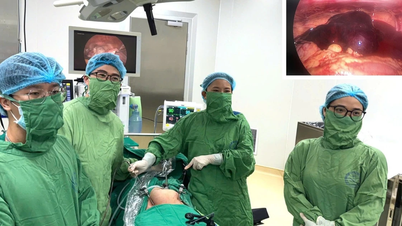
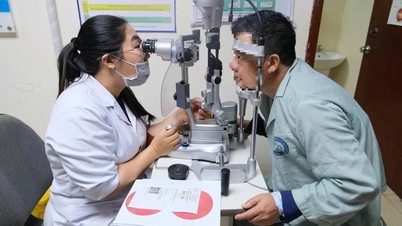
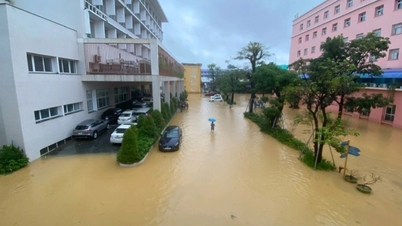











![[Photo] President Luong Cuong attends the 80th Anniversary of the Traditional Day of the Armed Forces of Military Region 3](https://vphoto.vietnam.vn/thumb/1200x675/vietnam/resource/IMAGE/2025/10/28/1761635584312_ndo_br_1-jpg.webp)
























































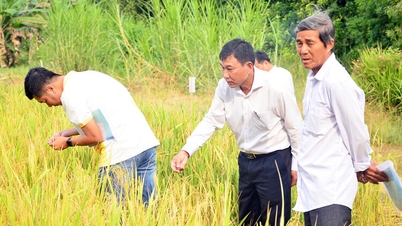

















Comment (0)